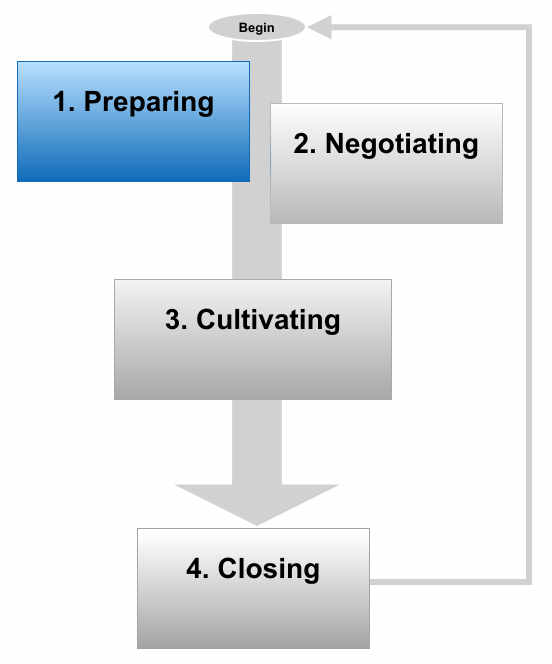Phase 1: Preparing


The preparing phase is a time for a potential mentor and mentee to contemplate their match and determine whether they are a good fit for working together. This phase might take place over a series of conversations and other information exchanges.
A “good fit” implies more than a general feeling of “getting along well.” Successful matching is also based on objective criteria such as the mentee’s professional aspirations and developmental needs and the mentor’s interest, expertise, and resources.
During the preparing phase, mentors should do the following (click on each topic below):
Share information about themselves
- Scientific expertise and past/current professional roles (CV, other summaries)
- Personal life (family, recreational interests)
- Enthusiasm for mentoring (reasons they enjoy and value it)
- Approach to working with mentees at various career stages and levels of independence (their “mentoring philosophy”)
- General expectations for mentees (roles, responsibilities).
Ask potential mentees to share information about themselves
- Research interests
- Training and career goals, both short- and long-term
- Background (professional and personal), values, and needs
- General expectations for mentors (roles, responsibilities)
- Reasons for specifically seeking you out as a mentor
- Views on how mentees help to build a successful relationship with mentors.
Expert Advice (A printable copy is provided in the Resources tab)
- Encourage potential mentees to talk with people you are currently mentoring or have mentored in the past. These individuals can offer firsthand insight into your mentoring style.
- Whenever feasible, both mentors and mentees should have a say in the match.10,11 In a study of formal mentoring programs, mentors’ and mentees’ perceived level of input into the matching process was positively correlated with their ratings of mentorship quality and satisfaction.12
- If you need to decline an invitation to become someone’s mentor, be kind but also be clear so as to prevent misunderstanding. Explain why you believe the individual should seek a different mentor and suggest alternative sources of help. If you are referring them to another mentor, check first with that person to see if he/she has the time and interest to take on this role.13

